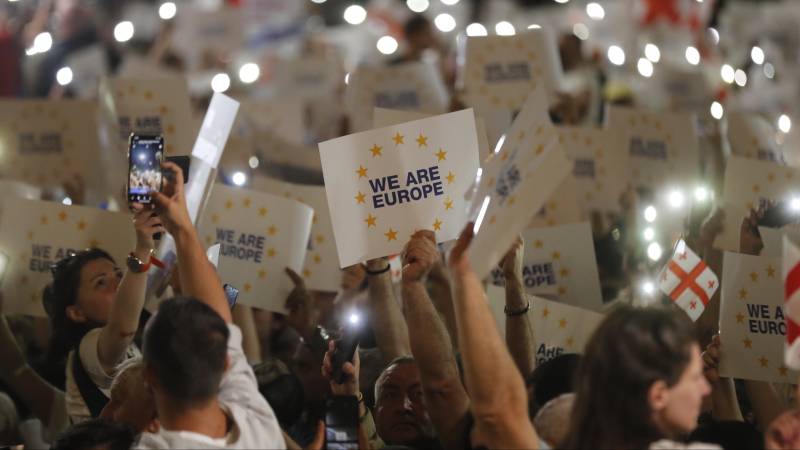Somewhat surprisingly, the country applied for EU membership in early March. Previously, that moment was scheduled to be in 2024, but the Russian invasion of Ukraine changed everything. On March 2, Ukraine officially announced its intention to join the European Union, and Moldova and Georgia followed suit the next day.
Fear of Russia
“Georgia has traditionally felt connected to Europe,” Degmalashvili told NOS after Monday’s massive rally. “We are a Christian country that has always been in contact with Europe over the centuries, by whatever country or people was dominating us at that time. We also received a European-inspired constitution in 1921, in which democracy took root and in which women and both men were given the right to vote” .
In addition, fear of Russia also plays a role in the desire of about 80 percent of Georgians to join the European Union as soon as possible, says Vika Bokia, a journalist with the independent Georgian channel TV Pervili. “We have been in a real panic since the beginning of the war. We know what it is like when Russia suddenly invaded, it happened here in 2008. Our future lies not in the Russian sphere of influence, but in the European Union.”
Long list of conditions
So Brussels sees it differently. Last week, the European Commission, the European Union’s executive council, announced that it supports Ukraine and Moldova for membership, but not Georgia. The state must first fulfill the list of additional conditions. For example, there must be a completely independent judiciary, freedom of the press and LGBT rights must be guaranteed, and the influence of the oligarchy must be radically reduced.
According to Thomas de Waal, as a Caucasian specialist affiliated with the Carnegie Europe think-tank, it is the oligarchs that are essentially preventing Georgia from EU membership at the moment. “Georgia has always been ahead of Ukraine and Moldova in meeting European requirements,” he says. “But under the current government, which is under the influence of the billionaire Bidzina Ivanishvili (whose total wealth is a third of the Georgian national product, ed.), this has reached its climax. The government was so anxious about the control of the judiciary that it retained, that it lost a promised loan of 75 million euros from European Union”.
According to de Waal, this leads the EU and Georgia to a complex balancing act: “The EU would like to reward Georgia’s aspirations, also as a signal to Russia. But this does not apply to the path taken by the Georgian government. In its turn, it is interested in all the advantages of membership in the Union. The European Union, but at the same time it does not want its position in power to be affected. The EU still loves Georgia, but at the moment, his love depends on the implementation of some reforms. “







